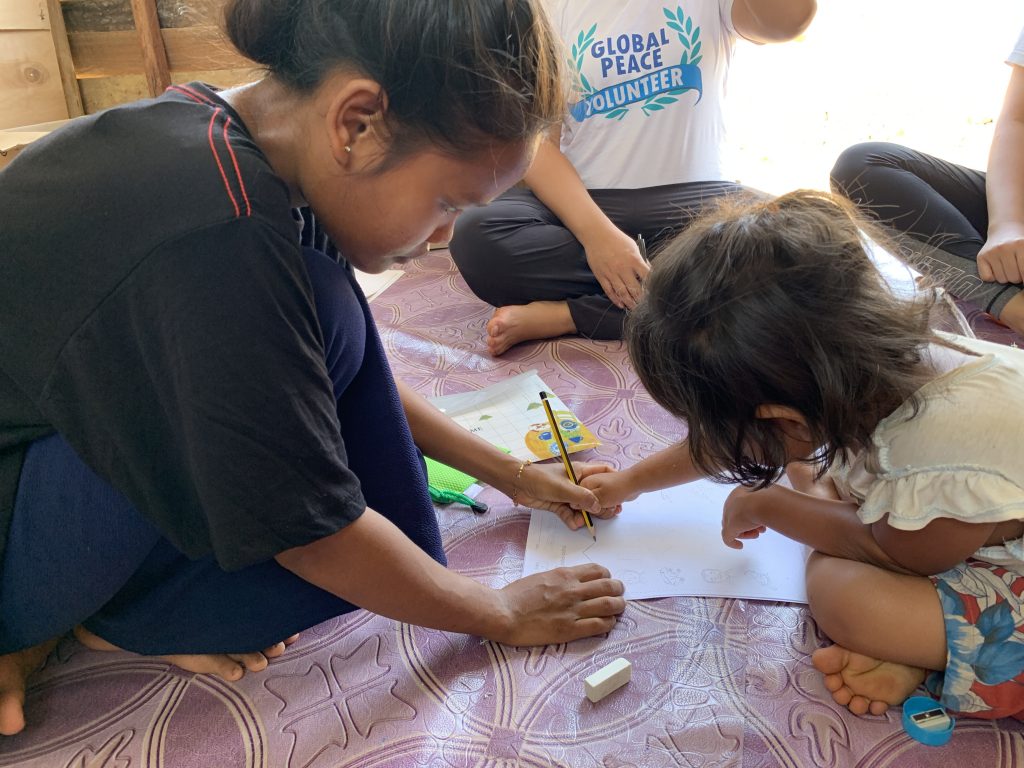Education is a basic right for all children and a critical key to poverty alleviation. Throughout the years of working with the Orang Asli community, we found many Orang Asli children with low literacy skills and high school dropout rates. Many more children have also never attended school at all.

There are numerous reasons that make education inaccessible to many of these underserved communities. One of them is due to the remote location and poor road conditions of these villages. Along with a lack of transportation, many Orang Asli parents find it extremely difficult to send their children to school located a distance away.
“Without (education), children who are 12 years old won’t be able to recognize the alphabets; They won’t know anything” – Imah, a mother of five from Kg. Petoh
Additionally, many parents are also unable to afford additional schooling materials such as school uniforms, books, stationery and lunch money for their children. This is because most families have little savings and spend most of their income on food.


Having never attended preschool, many children often lack integration in primary school and are unable to cope with the school syllabus. These challenges, compounded by the lack of parental awareness on the importance of education, result in many Orang Asli children to drop out from school.
To make education accessible, the Mobile School aims to provide Orang Asli children with the opportunity to learn basic literacy, numeracy and life skills.


We started the Mobile School, in partnership with ECM Libra Foundation, in June of 2020 across 5 villages in Pahang –Kg. Cerampak, Kg. Patah Jelutong, Kg. Petoh, Kg. Teraling and Kg. Terubing. With 2 to 4 learning sessions per week, the Mobile School has recruited and trained Orang Asli tutors in each of the 5 villages to improve literacy by bringing out-of classroom learning to the Orang Asli children.
“Even though class hasn’t started yet, the children are already on standby. They are so enthusiastic about studying… At night, they will come to my house to learn. I will tell them to go to bed but they are unwilling; they want to learn before going home.” – Surayati, a Mobile School teacher from Kg. Terubing



To foster greater learning interest among the Orang Asli children, the Mobile School utilizes play-based learning such as games, arts and sports. Sprinting into their classrooms, the children are incredibly eager to learn, singing excitedly to animated educational videos after practicing writing the alphabets with complete concentration.
“I just want them to know how to write their names, to recognize the alphabets…this is because our names are important. Everywhere we go, people will ask us to write our names.” Surayati, a Mobile School teacher from Kg. Terubing.


The Mobile School also encourages parents to participate in the learning for their children.
Playing a central role in the children’s access to education, we hope that the Mobile School will raise awareness on the importance of education so Orang Asli parents will prioritize and enroll their children to schools.
“As a teacher at the Mobile School, my hope is for all the students to become successful. And in that success, they will also recognize their own identity, as our (Orang Asli) culture is increasingly getting lost.” -Diana, a Mobile School teacher from Kg. Petoh
The Mobile School hopes to improve the literacy, numeracy and life skills of the Orang Asli children. This way, they can be better equipped to solve problems, develop self-learning capacity and integrate well with communities around them.
Written by:
Lauren Chew, Communications Officer






